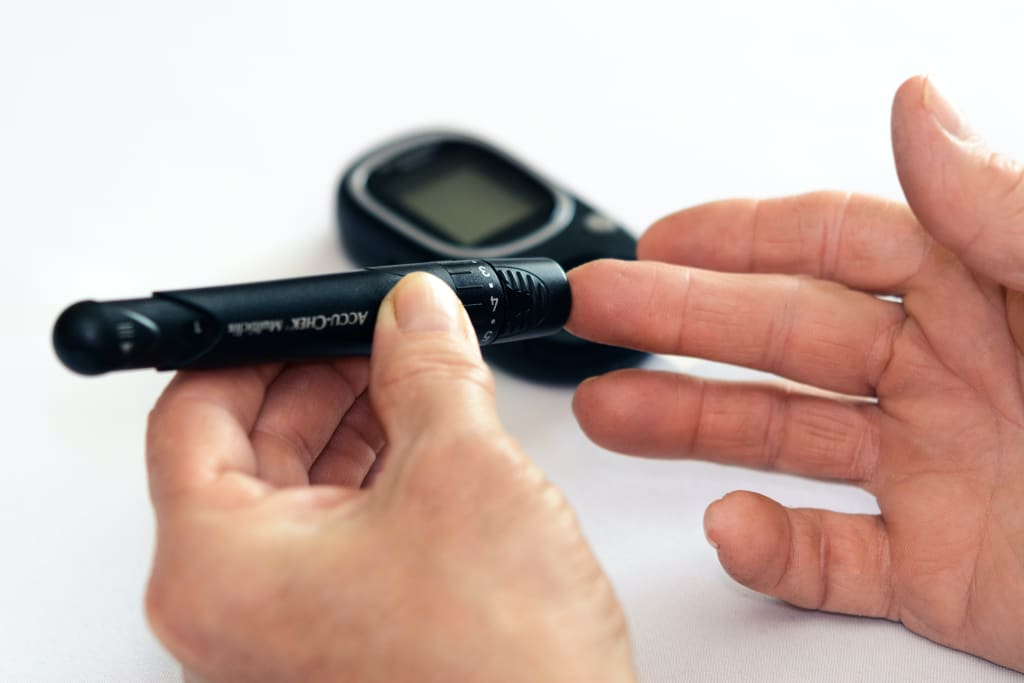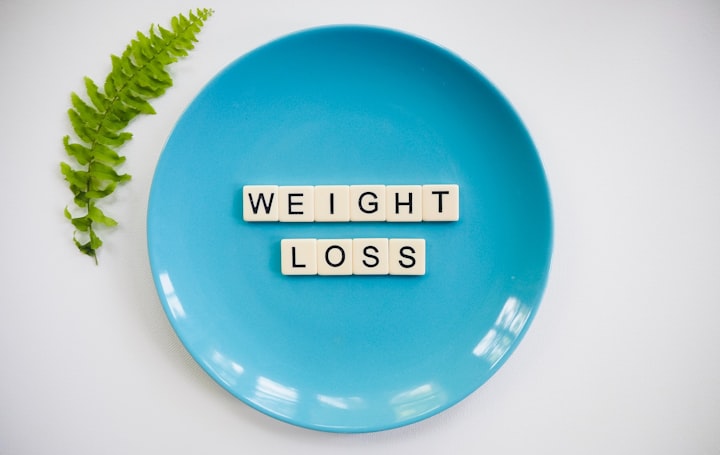Oversee Blood Sugar
How to Manage Blood Sugar Level

Your glucose target is the reach you attempt to reach however much as could be expected. Find out with regards to Monitoring Your Blood Sugar and All about Your A1C.
Keep your glucose levels in your objective reach however much as could be expected to help forestall or defer long haul, genuine medical issues, like coronary illness, vision misfortune, and kidney sickness. Remaining in your objective reach can likewise assist with working on your energy and temperament. Discover responds underneath to normal inquiries regarding glucose for individuals with diabetes.
How might I check my glucose?
Utilize a glucose meter (likewise called a glucometer) or a nonstop glucose screen (CGM) to check your glucose. A glucose meter estimates the measure of sugar in a little example of blood, typically from at the tip of your finger. A CGM utilizes a sensor embedded under the skin to gauge your glucose like clockwork. In the event that you utilize a CGM, you'll in any case need to test day by day with a glucose meter to ensure your CGM readings are precise.
When would it be advisable for me to check my glucose?
How frequently you check your glucose relies upon the kind of diabetes you have and on the off chance that you take any diabetes meds.
Commonplace occasions to check your glucose include:
1. At the point when you first wake up, before you eat or drink anything.
2. Prior to dinner.
3. Two hours after dinner.
4. At sleep time.
In the event that you have type 1 diabetes, have type 2 diabetes and take insulin, or frequently have low glucose, your PCP might need you to check your glucose all the more regularly, for example, then after the fact you're truly dynamic.
What are glucose targets?
A glucose target is the reach you attempt to reach however much as could be expected. These are average targets:
1. Prior to dinner: 80 to 130 mg/dL.
2. Two hours after the beginning of a dinner: Less than 180 mg/dL.
Your glucose targets might be distinctive relying upon your age, any extra medical issues you have, and different variables. Make certain to converse with your medical services group concerning which targets are best for you.
What causes low glucose?
Low glucose (likewise called hypoglycemia) has many causes, including missing a feast, taking a lot of insulin, taking other diabetes medications, practicing more than ordinary, and drinking liquor. Glucose under 70 mg/dL is viewed as low.
Indications of low glucose are distinctive for everybody. Normal indications include:
1. Shaking.
2. Perspiring.
3. Apprehension or tension.
4. Touchiness or disarray.
5. Dazedness.
6. Craving.
Know what your singulair side effects are so you can get low glucose early and treat it. On the off chance that you figure you might have low glucose, check it regardless of whether you don't have manifestations. Low glucose can be risky and ought to be treated straight away.
How might I treat low glucose?
Hypoglycemia Unawareness
In the event that you've had low glucose without feeling or seeing side effects (hypoglycemia ignorance), you might have to check your glucose all the more frequently to check whether it's low and treat it. Driving with low glucose can be hazardous, so make certain to check your glucose before you get in the driver's seat.
Convey supplies for treating low glucose with you. On the off chance that you feel temperamental, sweat-soaked, or exceptionally ravenous or have different manifestations, check your glucose. Regardless of whether you don't have side effects however figure you might have low glucose, actually take a look at it. On the off chance that your glucose is lower than 70 mg/dL, do one of the accompanying right away:
1. Take four glucose tablets.
2. Drink four ounces of organic product juice.
3. Drink four ounces of standard pop, not diet pop.
4. Eat four bits of hard treats.
Hang tight for 15 minutes and afterward check your glucose once more. Rehash one of the above medicines until your glucose is 70 mg/dL or above and eat a bite if your next dinner is an hour or all the more away. In the event that you have issues with low glucose, inquire as to whether your treatment plan should be changed.
What makes glucose high?
Numerous things can cause high glucose (hyperglycemia), including being wiped out, being anxious, eating more than arranged, and not giving yourself enough insulin. Over the long haul, high glucose can prompt long haul, genuine medical conditions. Indications of high glucose include:
1. Feeling exceptionally drained.
2. Feeling parched.
3. Having hazy vision.
4. Expecting to (pee) all the more frequently.
In the event that you become ill, your glucose can be difficult to oversee. You will most likely be unable to eat or drink as much as possible regularly, which can influence glucose levels. In case you're sick and your glucose is 240 mg/dL or above, utilize an over-the-counter ketone test pack to check your pee for ketones and call your primary care physician if your ketones are high. High ketones can be an early indication of diabetic ketoacidosis, which is a health related crisis and should be dealt with right away.
What are ketones?
Ketones are a sort of fuel created when fat is separated for energy. Your liver begins separating fat when there's insufficient insulin in your circulatory system to give glucose access to your cells.
What is diabetic ketoacidosis?
Diabetic Glucometer Blood sugar level testing unit
In the event that you figure you might have low glucose, check it regardless of whether you don't have indications.
At the point when such a large number of ketones are created excessively quickly, they can develop in your body and cause diabetic ketoacidosis, or DKA. DKA is intense and can cause a state of extreme lethargy or even passing. Normal indications of DKA include:
1. Quick, profound, relaxing.
2. Dry skin and mouth.
3. Flushed face.
4. Regular pee or thirst that goes on for a day or more.
5. Fruity-smelling breath.
6. Cerebral pain.
7. Muscle solidness or hurts.
8. Sickness and heaving.
9. Stomach torment.
In the event that you figure you might have DKA, test your pee for ketones. Follow the test unit bearings, checking the shade of the test strip against the shading diagram in the pack to see your ketone level. In the event that your ketones are high, call your medical services supplier immediately. DKA requires treatment in a medical clinic.
DKA happens most in individuals with type 1 diabetes and is in some cases the first indication of type 1 in quite a while who haven't yet been analyzed. Individuals with type 2 diabetes can likewise foster DKA, yet it's less normal.
How might I treat high glucose?
Converse with your PCP concerning how to keep your glucose levels inside your objective reach. Your PCP might recommend the accompanying:
Be more dynamic. Customary exercise can assist with keeping your glucose levels on target. Significant: don't practice in case ketones are available in your pee. This can make your glucose go much higher.
Accept medication as taught. In the event that your glucose is regularly high, your PCP might change how much medication you take or when you take it.
Follow your diabetes dinner plan. Inquire as to whether you're experiencing difficulty adhering to it.
Really look at your glucose as coordinated by your primary care physician. Check all the more frequently in case you're wiped out or on the other hand in case you're worried about high or low glucose.
Converse with your PCP about changing how much insulin you take and what sorts of insulin (like short-acting) to utilize.
How do carbs influence glucose?
Carbs in food make your glucose levels go higher after you eat them than when you eat proteins or fats. You can in any case eat carbs in the event that you have diabetes. The sum you can have and remain in your objective glucose range relies upon your age, weight, action level, and different variables. Including carbs in food sources and beverages is a significant device for overseeing glucose levels. Try to converse with your medical care group about the best carb objectives for you.
What is the A1C test?
The A1C test is a basic blood test that measures your normal glucose levels in the course of the last 2 or 90 days. The test is done at a lab or your primary care physician's office notwithstanding—not rather than—standard glucose testing you do yourself.
A1C testing is essential for the ABCs of diabetes—significant advances you can take to forestall or postpone unexpected issues not too far off:
A: Get a standard A1C test.
B: Try to keep your circulatory strain under 140/90 mm Hg (or the objective your primary care physician sets).
C: Manage your cholesterol levels.
s: Stop smoking or don't begin.
The A1C objective for most grown-ups with diabetes is somewhere in the range of 7% and 8%, however your objective might be diverse relying upon your age, other ailments, prescriptions you're taking, and different variables. Work with your PCP to build up an individual A1C objective for you.
How else would I be able to deal with my glucose levels?
Eating a solid eating regimen with a lot of foods grown from the ground, keeping a sound weight, and getting normal active work would all be able to help. Different tips include:
1. Monitor your glucose levels to perceive what makes them go up or down.
2. Eat at standard occasions, and don't skip suppers.
3. Pick food sources lower in calories, immersed fat, trans fat, sugar, and salt.
4. Track your food, drink, and active work.
5. Drink water rather than juice or pop.
6. Cutoff cocktails.
7. For a sweet treat, pick natural products.
Control your food segments (for instance, utilize the plate strategy: fill a large portion of your plate with non-boring vegetables, a quarter with lean protein, and a quarter with a grain or bland food).
About the Creator
Ishara Sampath
Simplicity is the key to happiness





Comments
There are no comments for this story
Be the first to respond and start the conversation.